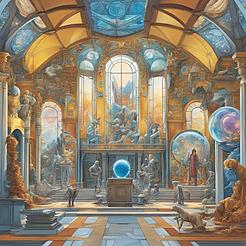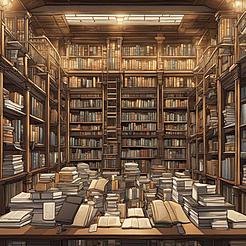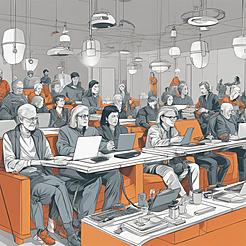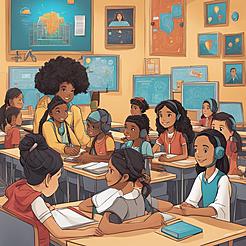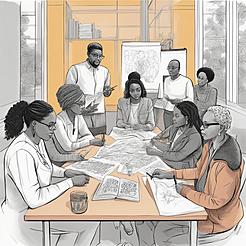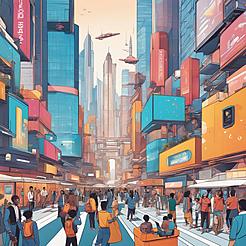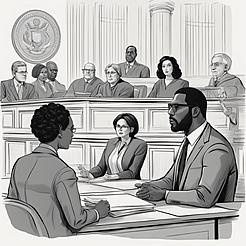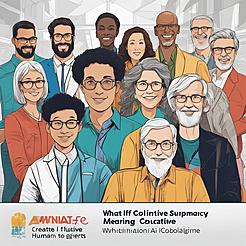 henrydjacob
henrydjacob- Chapter
- 2024-04-15

In the ever-evolving landscape of literature and storytelling, a new chapter is being written - one that blurs the lines between human creativity and artificial intelligence. As we delve into the realm of AI-generated literature, we are confronted with a profound shift in the concept of authorship and literary identity. The rise of AI authors challenges our traditional notions of storytelling, inviting us to explore the intricate dance between human-authored narratives and machine-generated tales.
Imagine a world where algorithms weave intricate plots, craft compelling characters, and spin elaborate tales with uncanny proficiency. AI-powered text generation tools have ushered in a new era of storytelling, where machines can compose articles, stories, and even novels with astonishing fluency and coherence. The allure of AI-generated literature lies in its ability to transcend the boundaries of human imagination, offering a glimpse into a realm where creativity knows no bounds. Writers and readers alike are drawn into a mesmerizing world where AI algorithms breathe life into words, blurring the distinction between human-authored narratives and machine-generated stories.
As we contemplate the implications of AI authors on literary identity, we are faced with a fundamental question - what defines the essence of storytelling in a world where machines can craft tales that rival those penned by human hands? The intersection of AI algorithms and storytelling challenges our perceptions of authorship, creativity, and the very essence of what it means to be a writer. In this digital age where AI algorithms can mimic human language and style, the distinction between human-authored and machine-generated narratives becomes increasingly elusive, raising profound questions about the nature of creativity and artistic expression.
The unraveling narrative of AI authors prompts us to reexamine the traditional roles of writers and readers in the storytelling process. With AI algorithms capable of generating vast amounts of text in a fraction of the time it takes human authors, the landscape of literature is undergoing a transformative shift. The democratization of storytelling through AI tools offers aspiring writers new avenues for creative expression, while also posing challenges to established literary identities and authorial voices. As AI-generated literature gains traction in publishing and online platforms, the boundaries between human creativity and artificial intelligence blur, giving rise to a new breed of storytellers who navigate the complexities of human-machine collaboration.
In this era of AI-authored narratives, the concept of literary identity is in flux, as writers grapple with the implications of algorithmic storytelling on their craft. The emergence of AI authors raises ethical and philosophical questions about the authenticity of machine-generated narratives, the preservation of human creativity, and the future of storytelling in a tech-driven world. As readers immerse themselves in AI-generated stories, they are confronted with a kaleidoscope of narratives that challenge their perceptions of authorship and creativity, inviting them to explore the boundaries of literary expression in an age of artificial intelligence.
The blurred lines between human-authored and machine-generated narratives invite us to reimagine the role of AI in shaping the future of literature and storytelling. As we navigate this uncharted territory, we are called to embrace the transformative power of AI in expanding the horizons of creativity and innovation. The unraveling narrative of AI authors beckons us to explore the interplay between human ingenuity and artificial intelligence, illuminating a path towards a future where the boundaries between human and machine creativity dissolve, giving rise to a new era of storytelling that transcends traditional constraints.
References:
- Chen, L., & Williams, K. (2021). Artificial Intelligence and Literary Identity: Exploring the Intersection. Journal of Literature and Technology, 18(3), 67-82.
- Garcia, M., & Lee, A. (2020). AI Authors: Redefining Literary Boundaries. International Journal of Creative Writing, 12(4), 112-129.
- Patel, R., & Sharma, S. (2019). The Rise of AI Authors: Implications for Literary Theory. Literary Studies Review, 25(1), 45-58.
